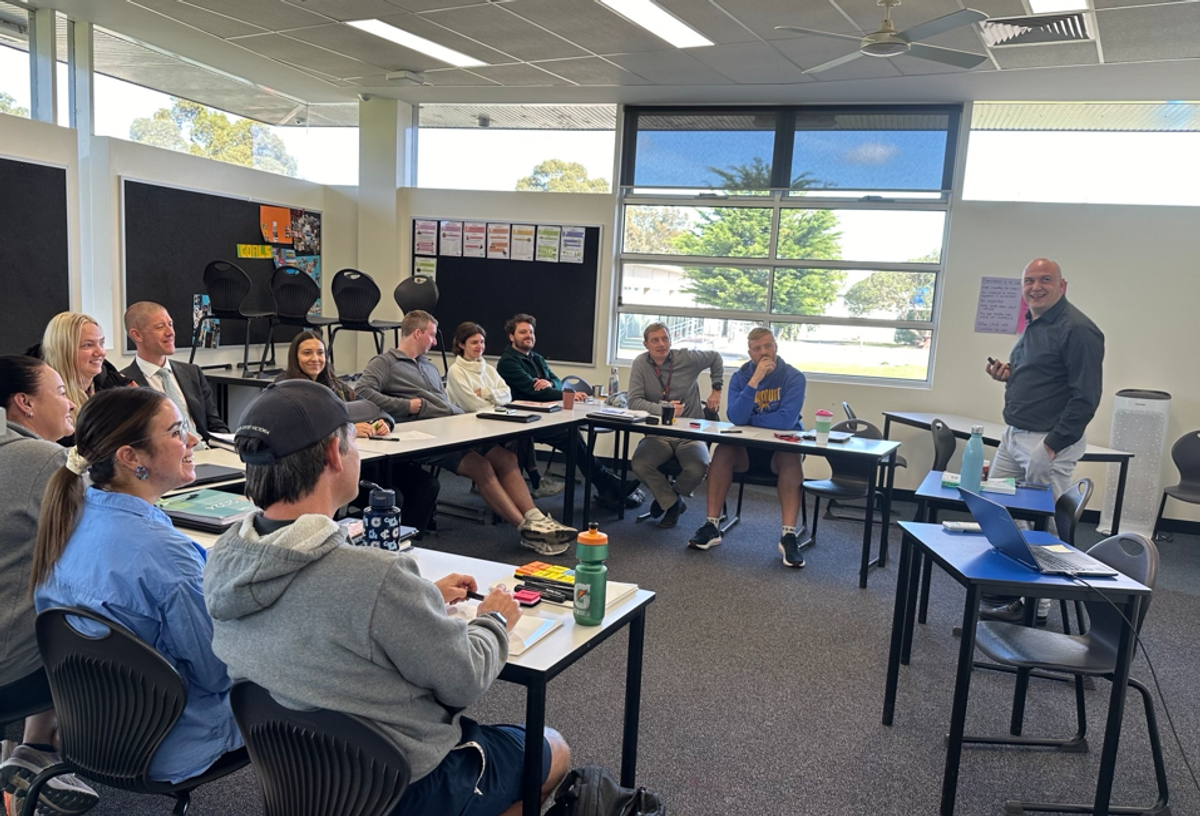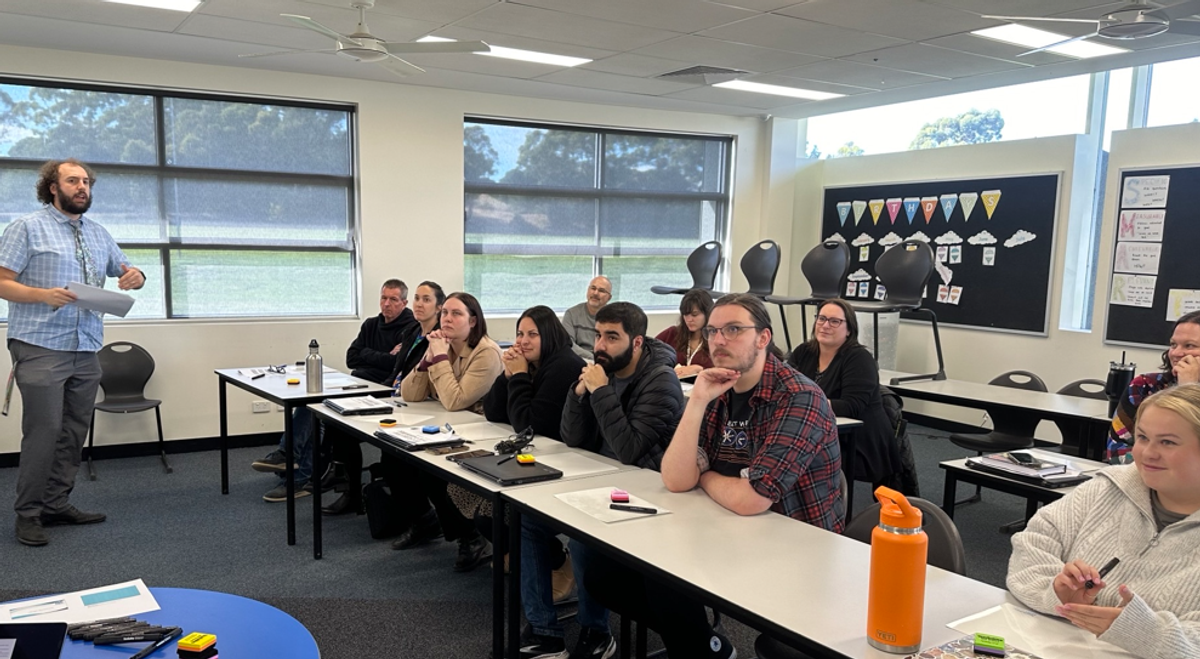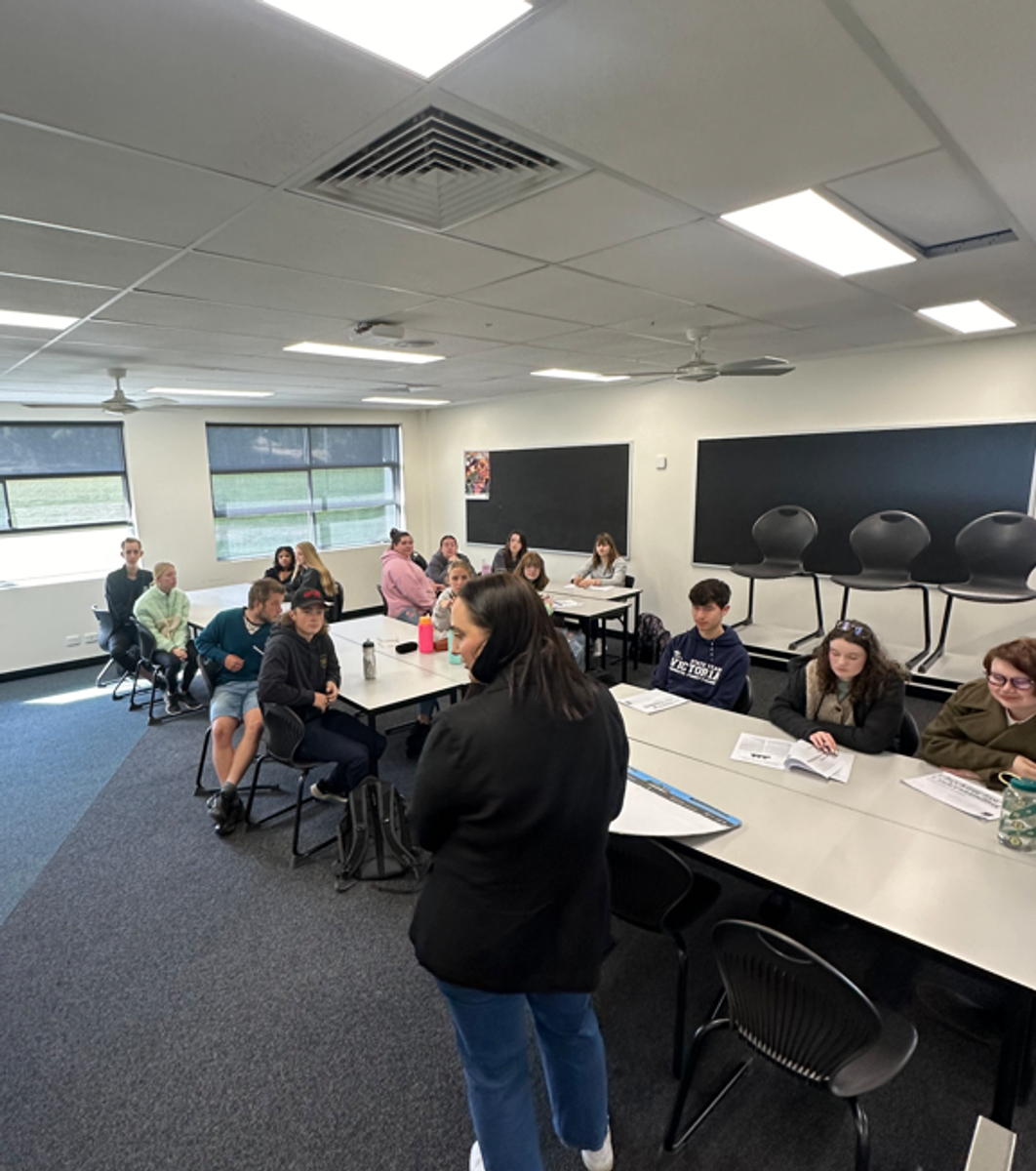Learning and Teaching
Steve Sirrals

Learning and Teaching
Steve Sirrals
Curriculum, Assessment and Teaching and Learning
Steve Sirrals
Assistant Principal: Curriculum, Assessment and Teaching and Learning
Staff Professional Learning – Term 3
On Monday 15th April, Woodmans Hill teaching staff participated in a day of professional learning; focused on Checking for Understanding.
Checking for Understanding is an instructional process that involves teachers systemically checking for what has been learnt from every student. It’s the recognition that we can’t assume students have understood words, topics, concepts, explanations or procedures unless we get some feedback from all of them, telling us what they have understood.
The information we receive from checking should inform the next steps in the learning sequence; re-teaching content, tackling misconceptions to moving on to new learning. The process also helps students secure a deeper understanding and assists them in their retrieval of learnt information.
At Woodmans Hill, we have redesigned the way that we delivered the professional learning, including selected students in the learning, so that they understand the purpose of what we are doing. By understanding the purpose and thereby developing a joint language about how we learn, we offer the best opportunity for learning to impactful.
The morning session had teaching staff and student leaders participate in learning about research behind Checking for Understanding and discussing professional readings.
After this teaching staff went to three different sessions in the middle of the day, focusing on:
The sessions above focused both on either quality questioning or methods to gain knowledge of student understanding.
During this session time, the student leaders worked together, guided by Shannon Ross, to unpack the learning from the morning session and discuss what it meant for them. They discussed and planned ways in which they could inform the student cohort of the learning and decided upon feedback that they would provide the teaching staff.
In the afternoon session, the school captains spoke to the teaching staff, sharing what they had learnt during the day and their discussions and decisions from the previous sessions. They provided direct feedback to staff, showing confidence in their message; ‘tell us why you try different instruction methods so we understand’.
After this, teaching staff worked in professional learning communities (teams) to plan how they can implement their selected strategies (form the middle sessions) in classes, monitor the impact of their trialing and evaluate the quality of instruction in classes.


Staff learning about highly effective Multiple-Choice Questions.


Staff learning together, exploring Hinge Questions.


Students unpacking their learning and discussing how they will share this with the school community.